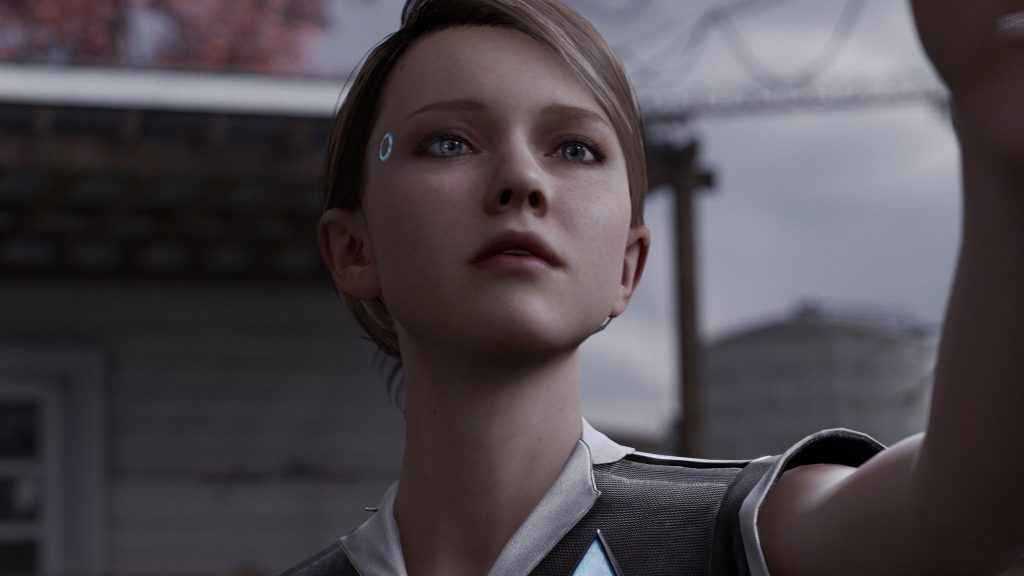At the time of writing, the internet is awash with various articles from traditional forms of media decrying the depiction of child abuse within the upcoming PS4 game Detroit: Become Human.
Spearheaded by the founder of the charity ‘Childline' - and reinforced by the likes of the NAPCAN [The National Association for Prevention of Child Abuse and Neglect] and the NSPCC [National Society for the Prevention of Cruelty to Children] - the contention currently echoed revolves around a scene in developer Quantic Dream's latest game where an aggressive single father named Todd is seen to violently attack his young daughter with the severity determined by choices you, the player, make as an android maid named Kara.
Childline slams Detroit: Become Human
“Any video game that trivializes or normalizes child abuse, neglect or domestic violence for entertainment is unacceptable,'' said the NSPCC's Andy Burrows in response to Detroit: Become Human’s showing at Paris Games Week back in late October. It's not the first time that Quantic Dream CEO David Cage has courted controversy through the themes explored in his games.
Indeed, Microsoft baulked at the chance to publish 2010's Heavy Rain due to its child abduction plotline. The game would go on to sell in excess of 4.5 million units worldwide. Similarly, one of Cage's earlier games, Indigo Prophecy, prompted a raised eyebrow or two for the inclusion of an explicit sexualized mini-game, though Grand Theft Auto: San Andreas' ‘Hot Coffee' debacle remains the benchmark for mainstream outcry in that regard.
Though the delivery and handling of these themes by Cage has engendered much discussion in video game circles over the years - the contention being that the likes of Life is Strange, Spec Ops: The Line and The Walking Dead do it in a more considered way - they've rarely broached the mainstream narrative like Detroit: Become Human has, despite it still being in development. Pre-empting this sort of discussion in the wider spectrum of mainstream criticism, back long before the aforementioned Paris showcase, Cage - perhaps in an effort to deflect discussion - dismissed the emotive implications of his latest game by declaring that ‘'there is no big message to humanity in this game.''
He added: “It’s just interesting questions that may resonate with your own personal values and just confront you with the consequences [of your] actions.”
Detroit: Become Human - lack of understanding about video games
Leaving it up to the player to derive meaning and intention is fine in and of itself but without contextualizing the scenarios that you present to the general public you leave the door open for people - not particularly versed in video games bar their own preconceived notions - to construct a narrative that is then used to condemn the medium as a whole. Of course, these charities and watchdog groups have good intentions but this is fundamentally a failure on their part to recognize that video games are now a medium capable of asking real questions, challenging ideals, and making statements just like its counterparts in TV and film.
It's disingenuous to suggest that the topics dealt with in the likes of Hellblade: Senua's Sacrifice, (the stigma surrounding mental health) What Remains of Edith Finch, (the reality of death) and Gone Home (homosexuality) are any less emotionally resonant than that seen in certain films; to argue otherwise would do an immense disservice to the incredible work developers do in crafting these experiences. A video game's ability to handle a difficult topic with sensitivity and understanding should never be dismissed as being ‘trivial' by virtue of the fact that it is indeed a video game and not a different medium altogether. In fact, while some will point to the interactivity of video games as being the harbinger of warped minds it can be argued that that heightened sense of agency can be used to evoke a much deeper reaction in players. Hell, just ask those that played The Last of Us.

Whether or not Cage and his team are capable of tackling taboo subjects with the requisite level of nuance required is up for debate but the point remains unequivocal: if video games as a medium wish to attain the level of legitimacy granted to the likes of TV and film then they cannot shy away from areas of societal contention. In fact, many video games should strive to embrace them. Just like Darren Aronofsky’s Requiem for a Dream or even The Exorcist before it, media should always be allowed tackle uncomfortable topics and act as a vehicle for relating experiences and understanding directly to the viewer/player. By the same token, it is within its right to challenge the viewer/player in equal measure.
Through the medium's unique possibilities for free-form choice and agency, video games are in a distinct position to deliver interactive scenes that evoke deep emotion through controlled action - scenes capable of eliciting empathy, revelation, and understanding. It's said that powerful art should be able to speak one-to-one with the recipient and deliver its message no matter what the subject, otherwise what is the point?
We've come a long way from the days where video games were written off as fodder for basement dwellers or understood as vacuous time-sinks corrupting our youth. Video games nowadays are culturally and mechanically diverse - tackling a wide range of subjects and areas of conflict, so it's about time others begin to treat the medium with the same amount of respect as developers do with the topics they choose to tackle.

